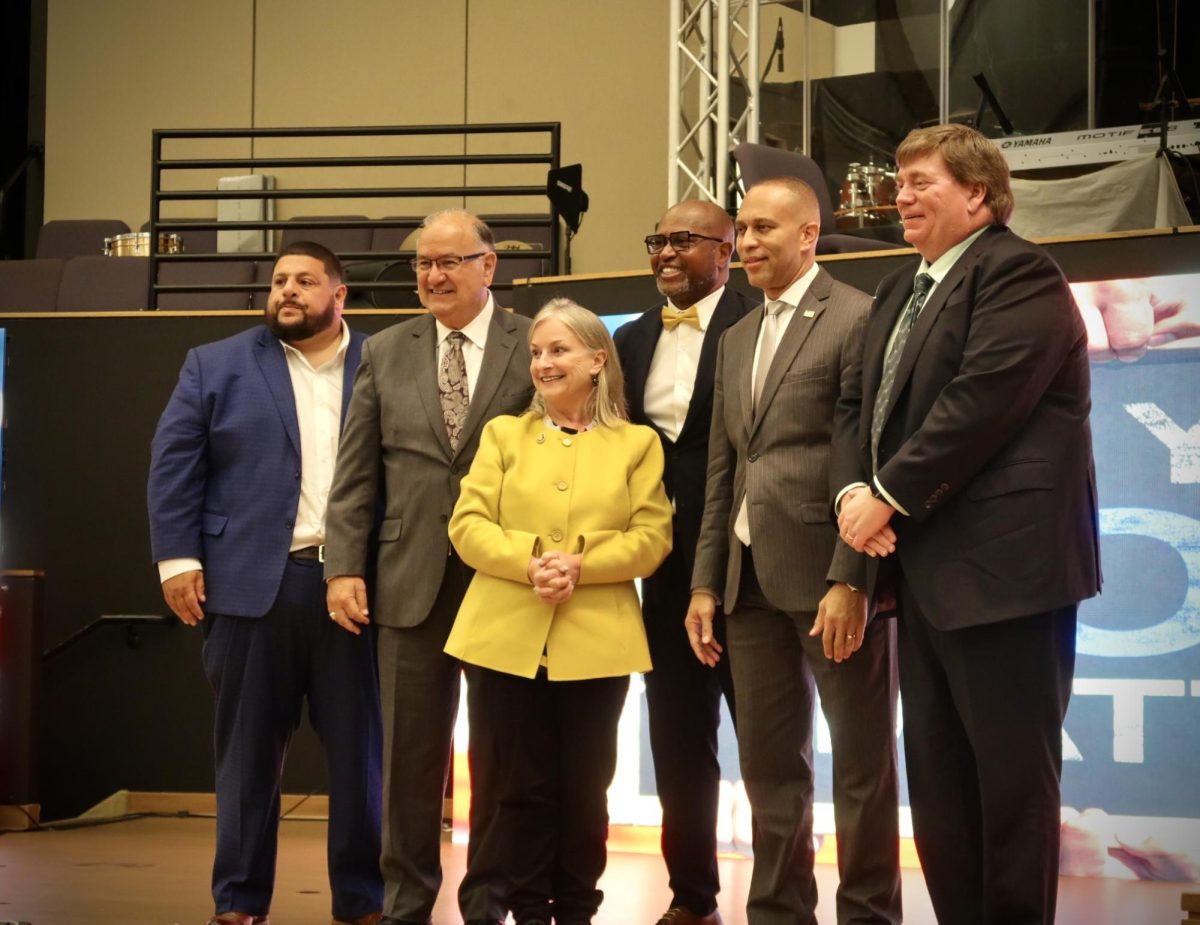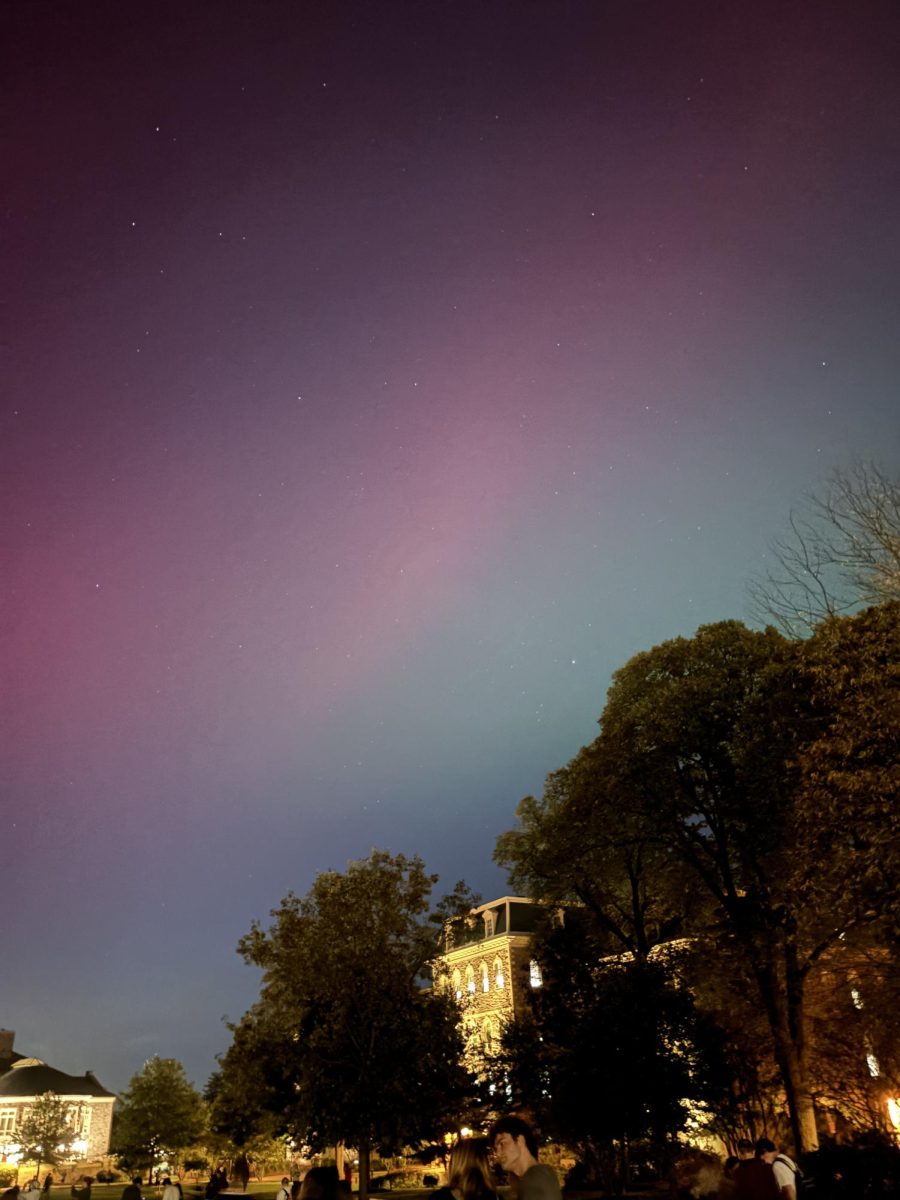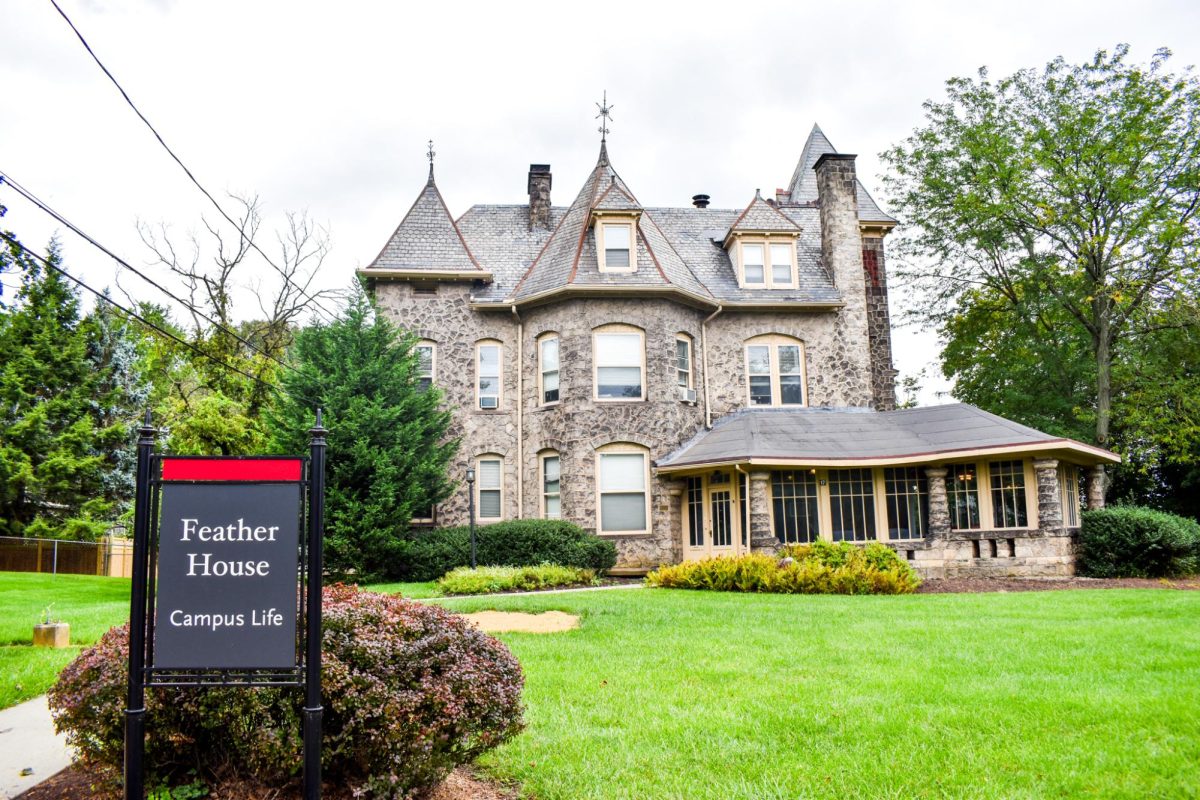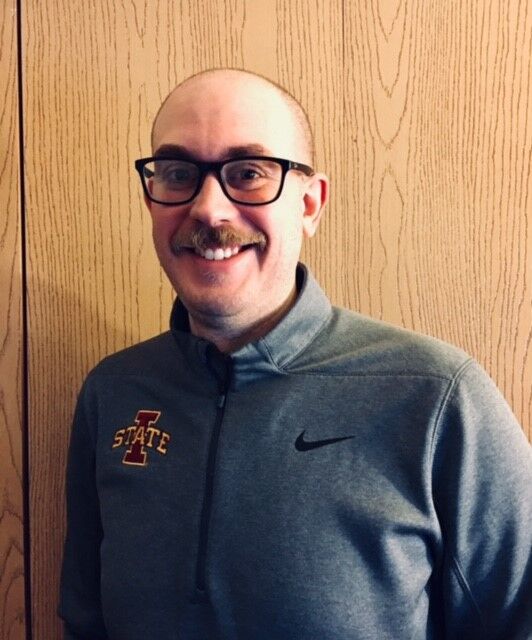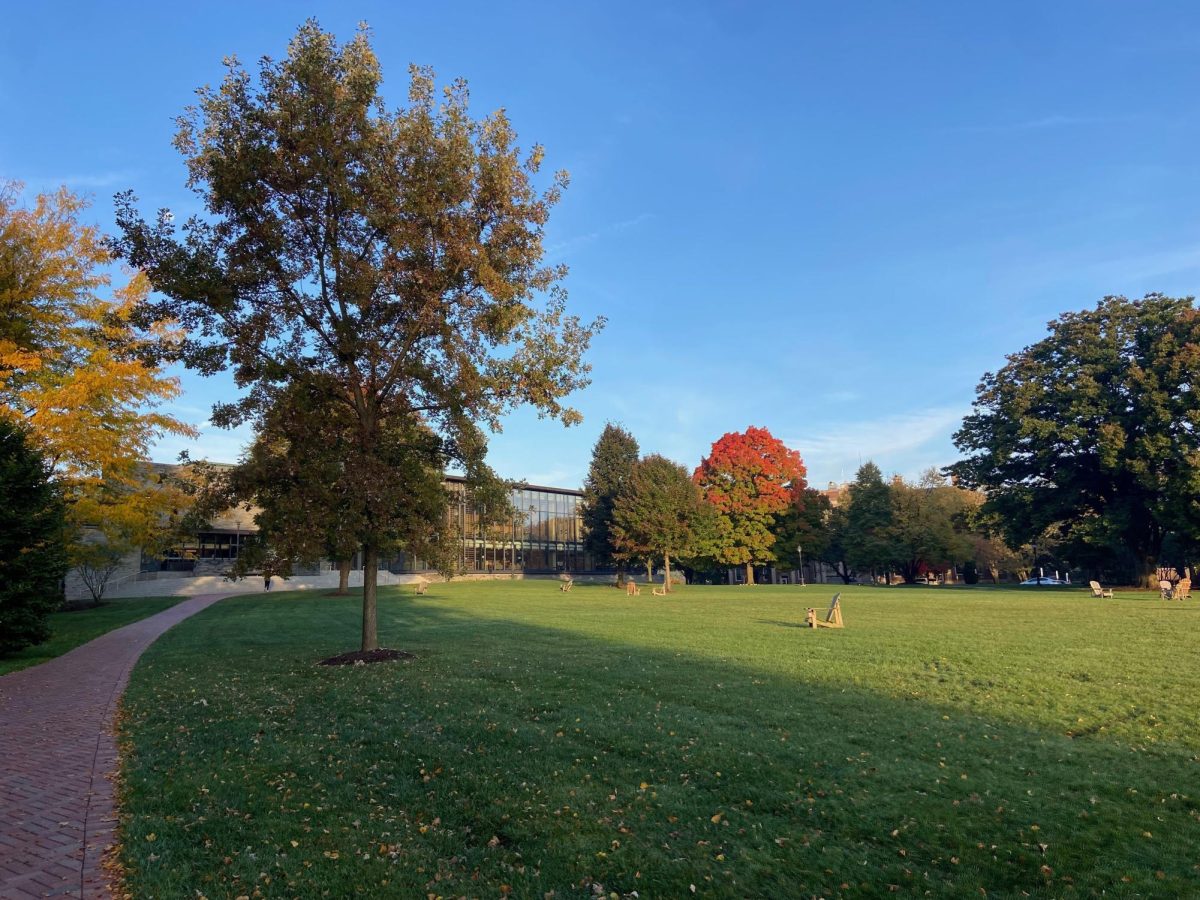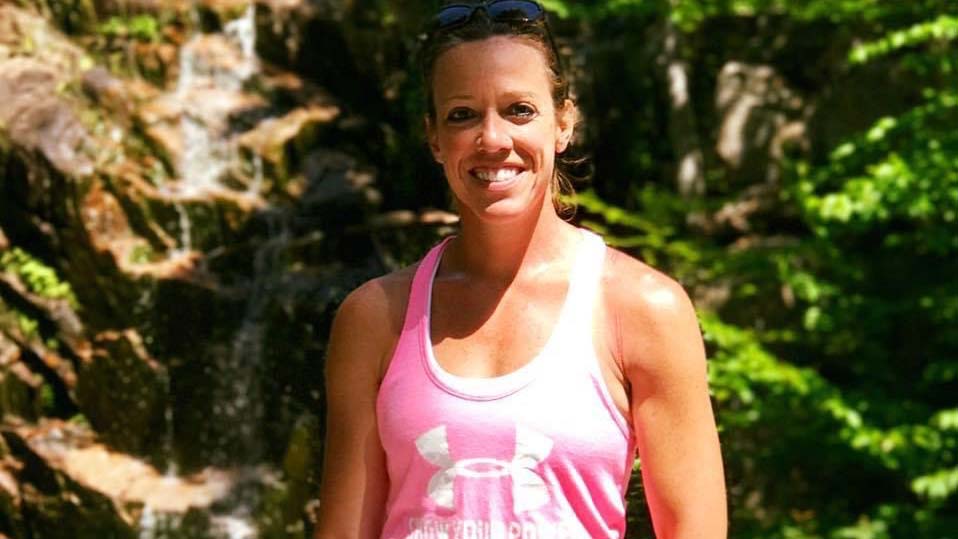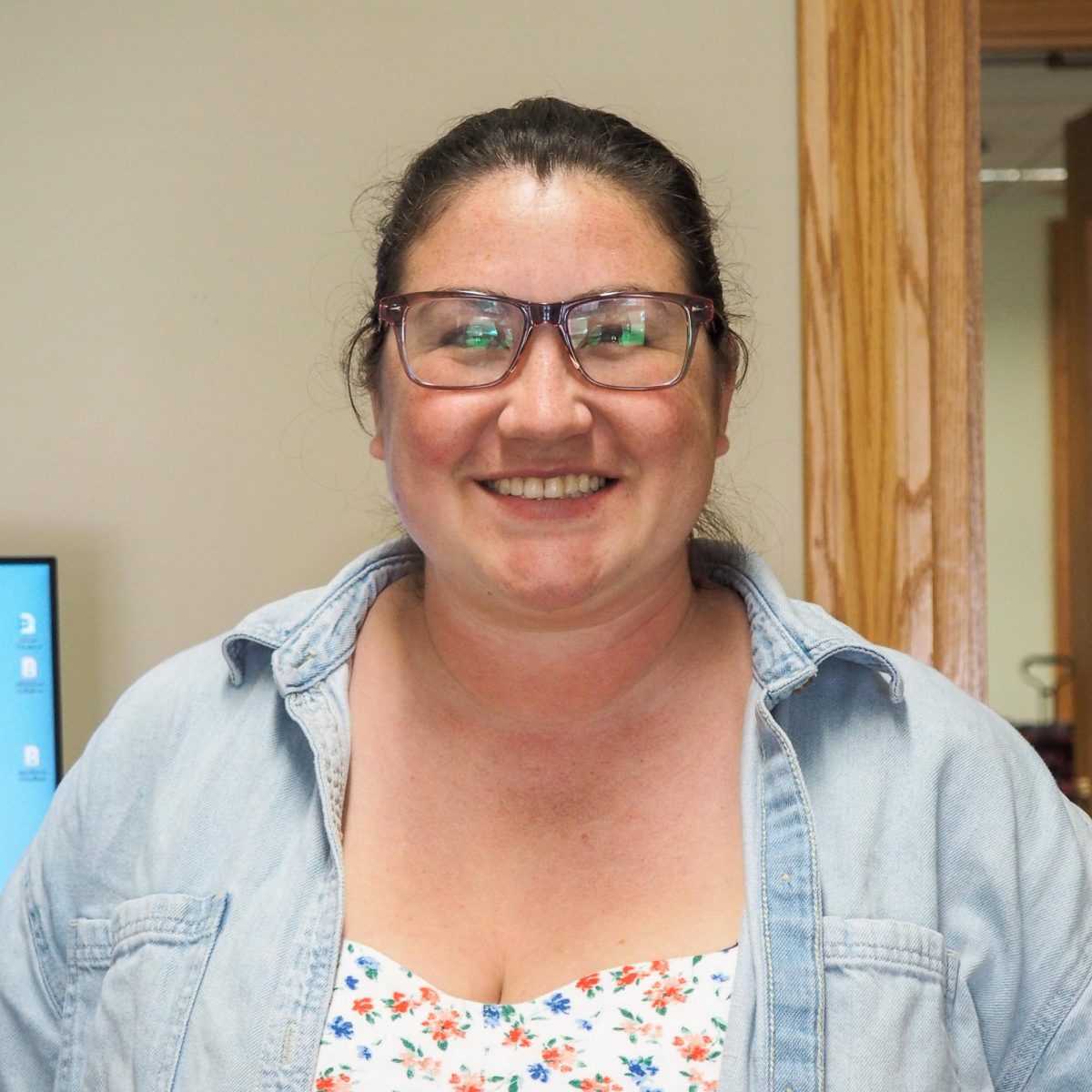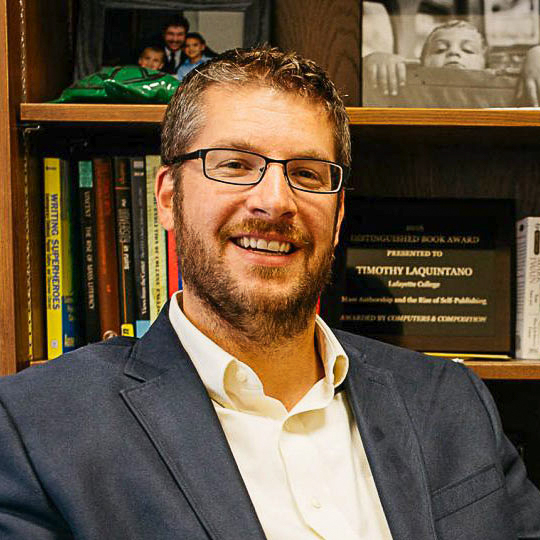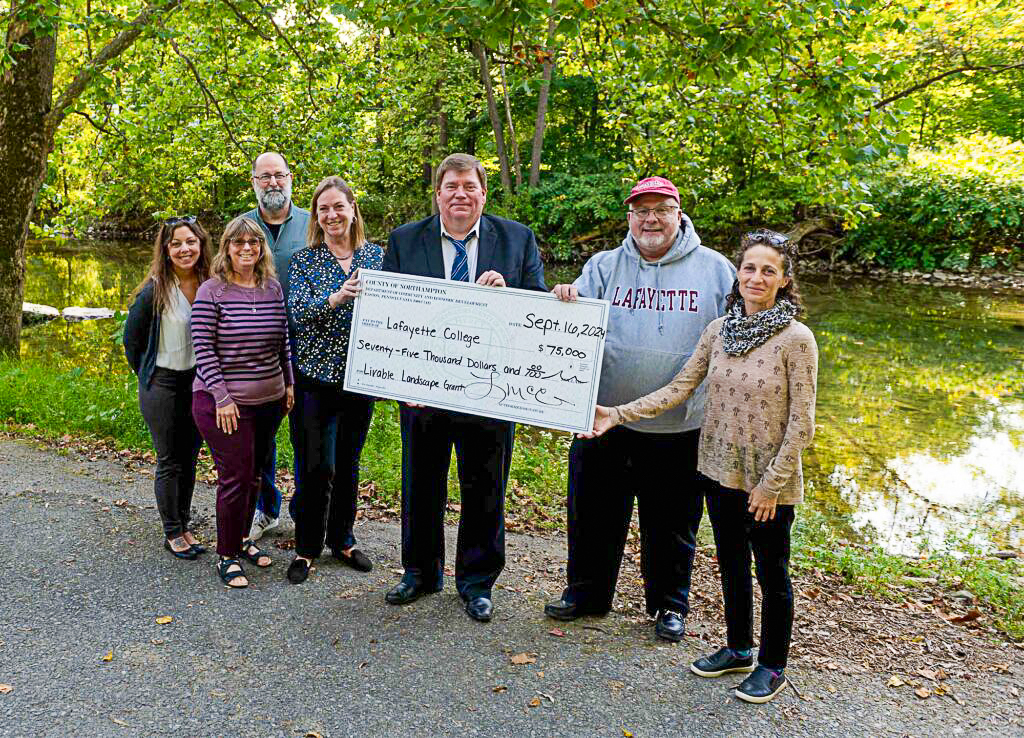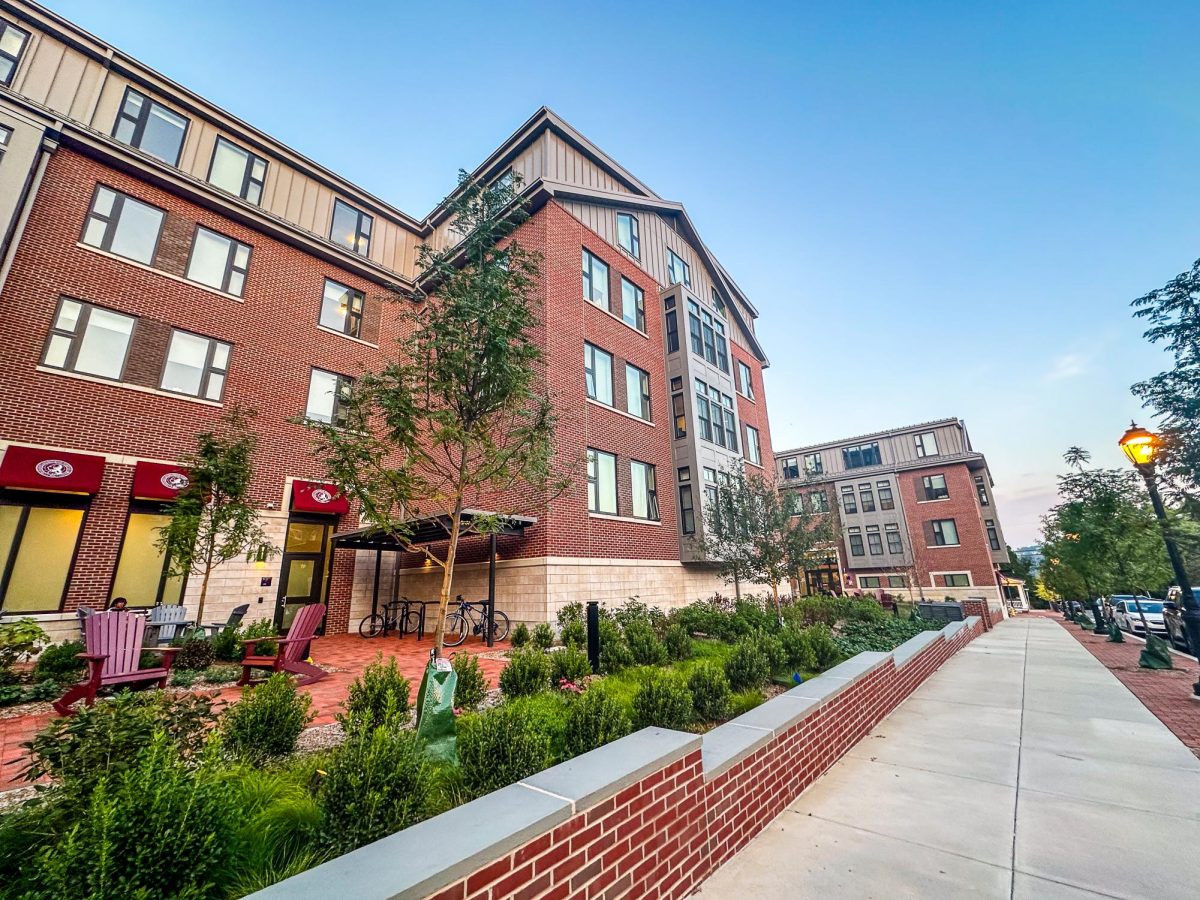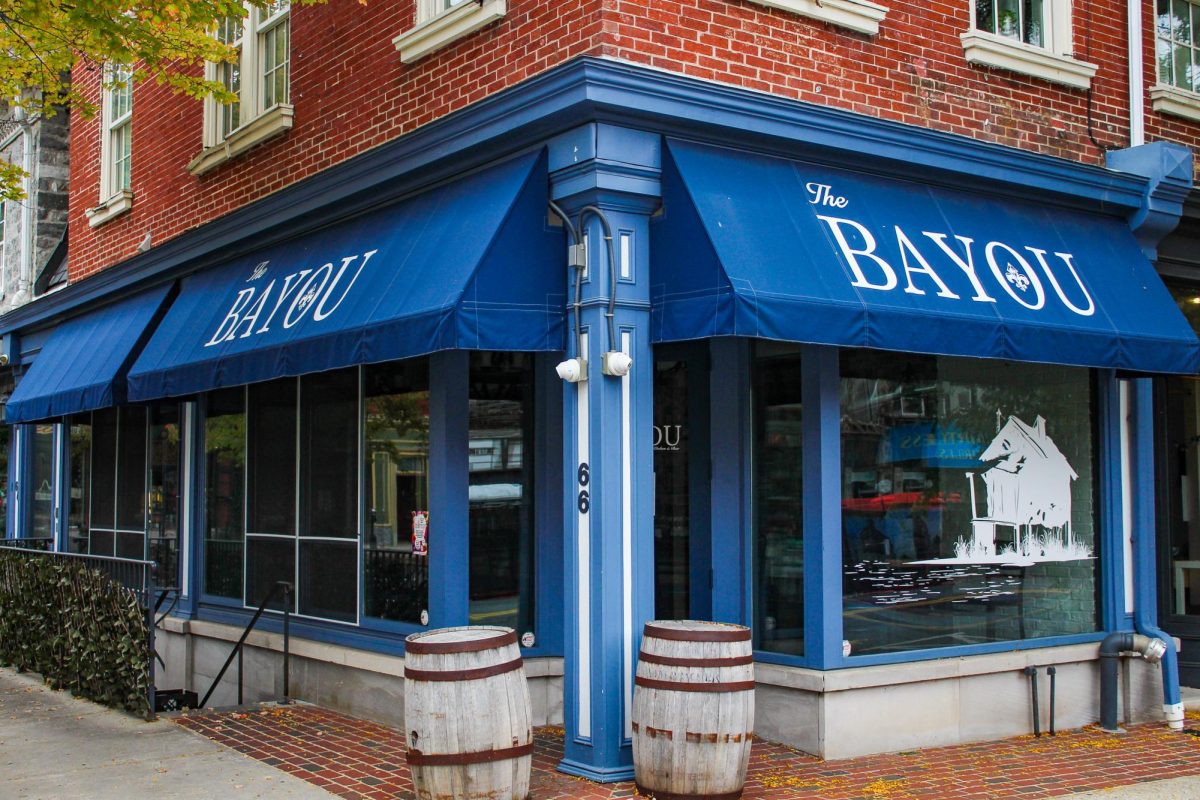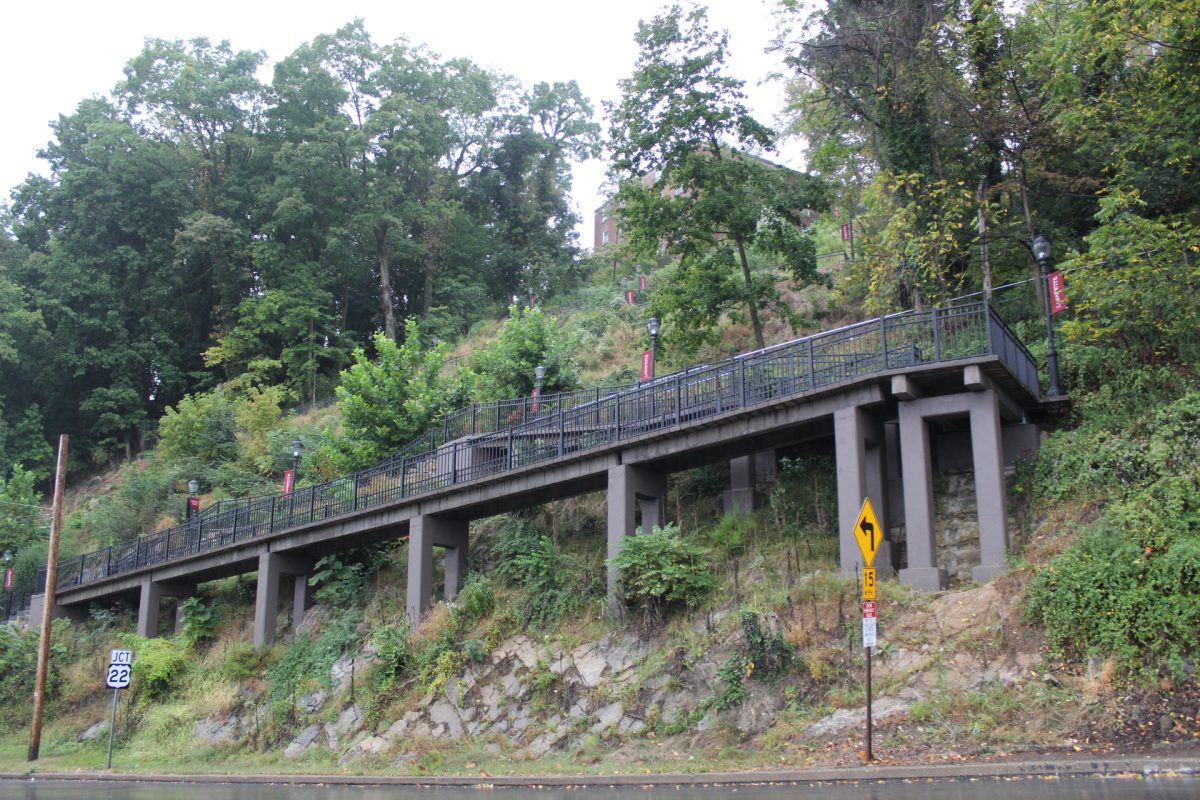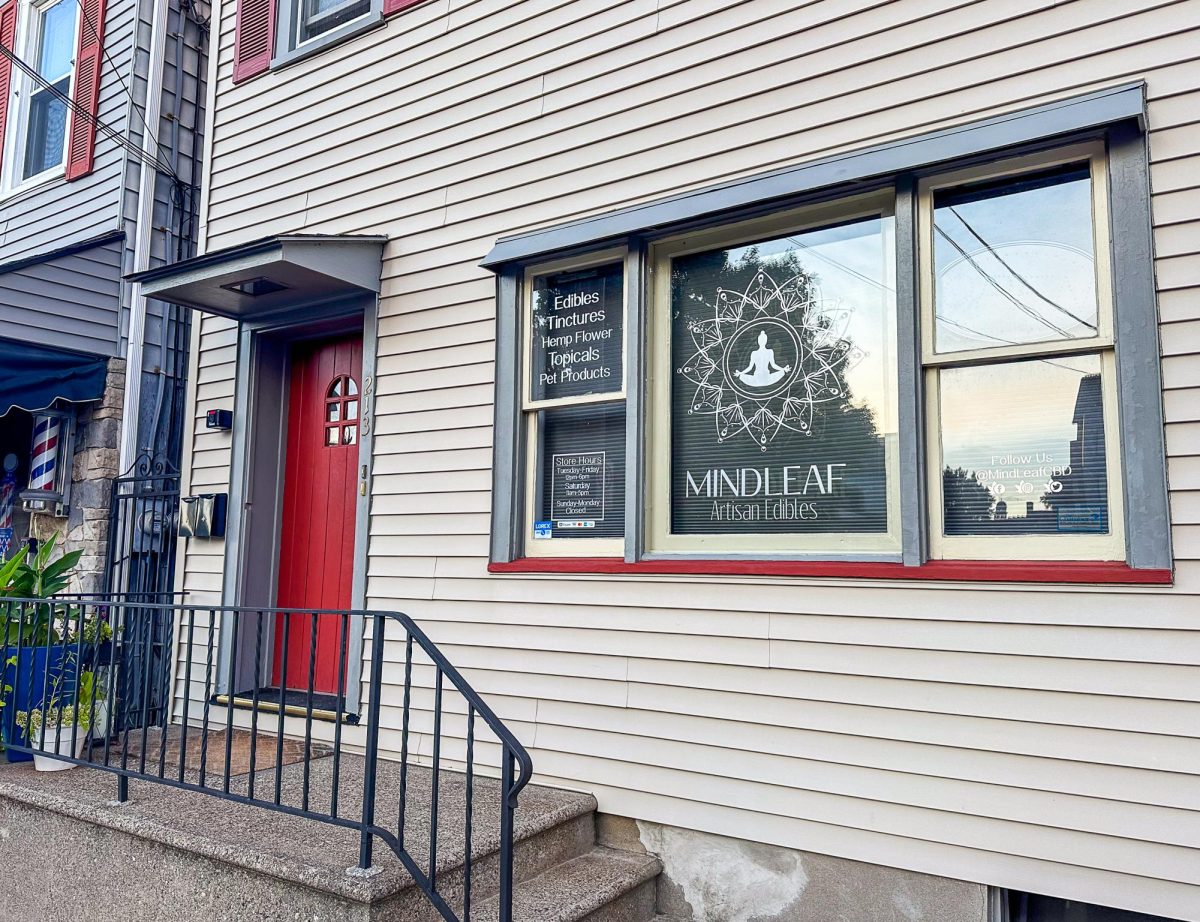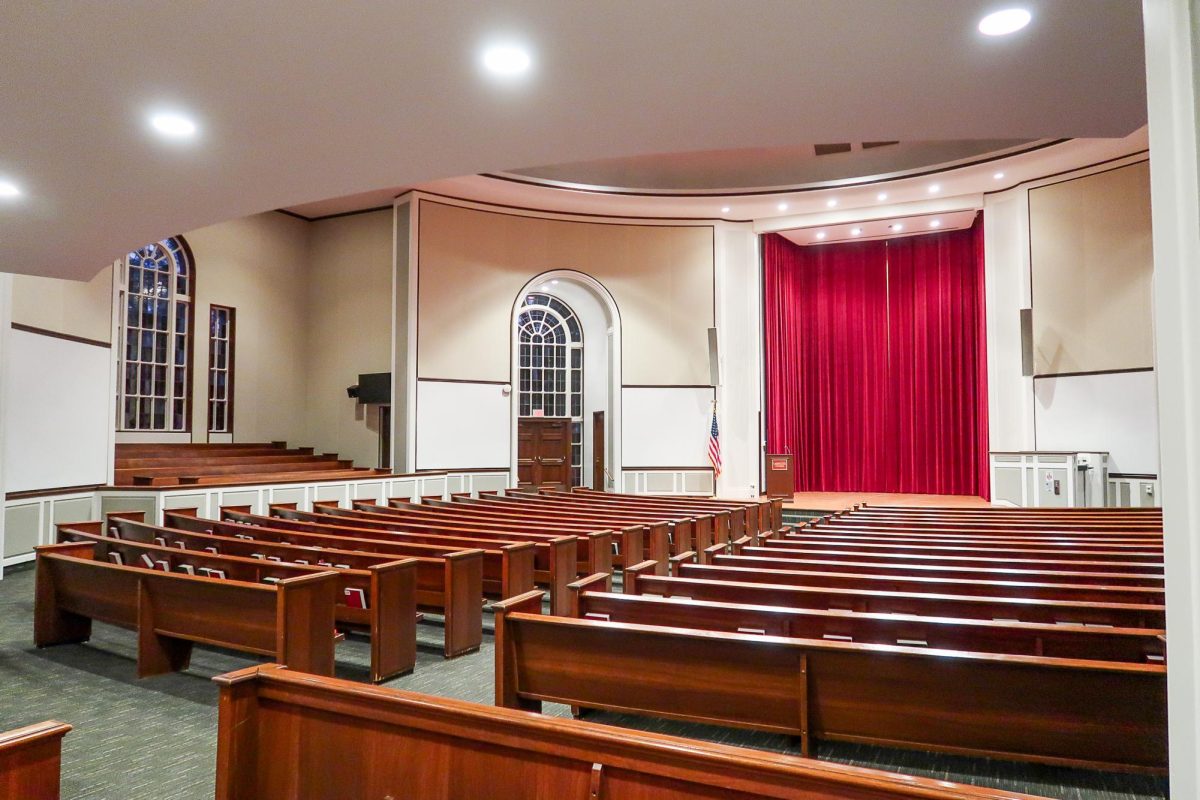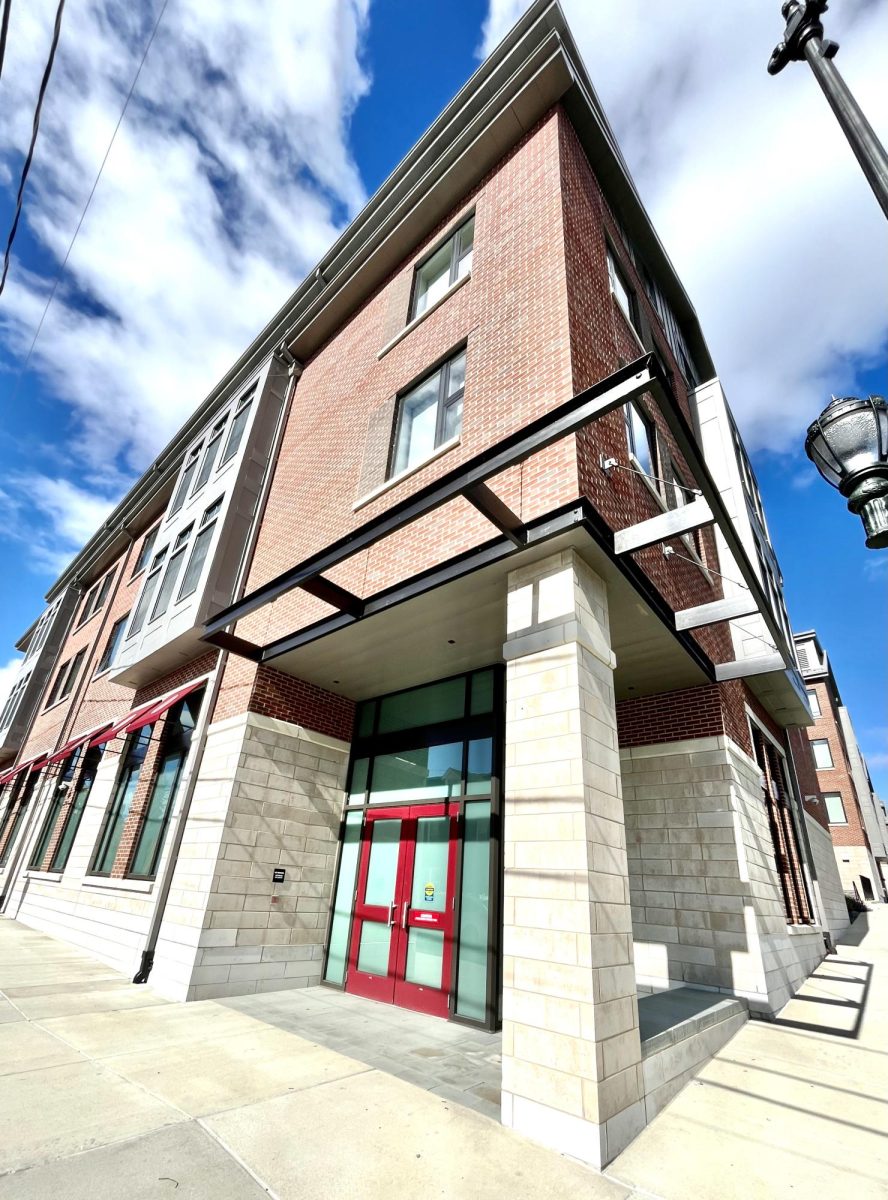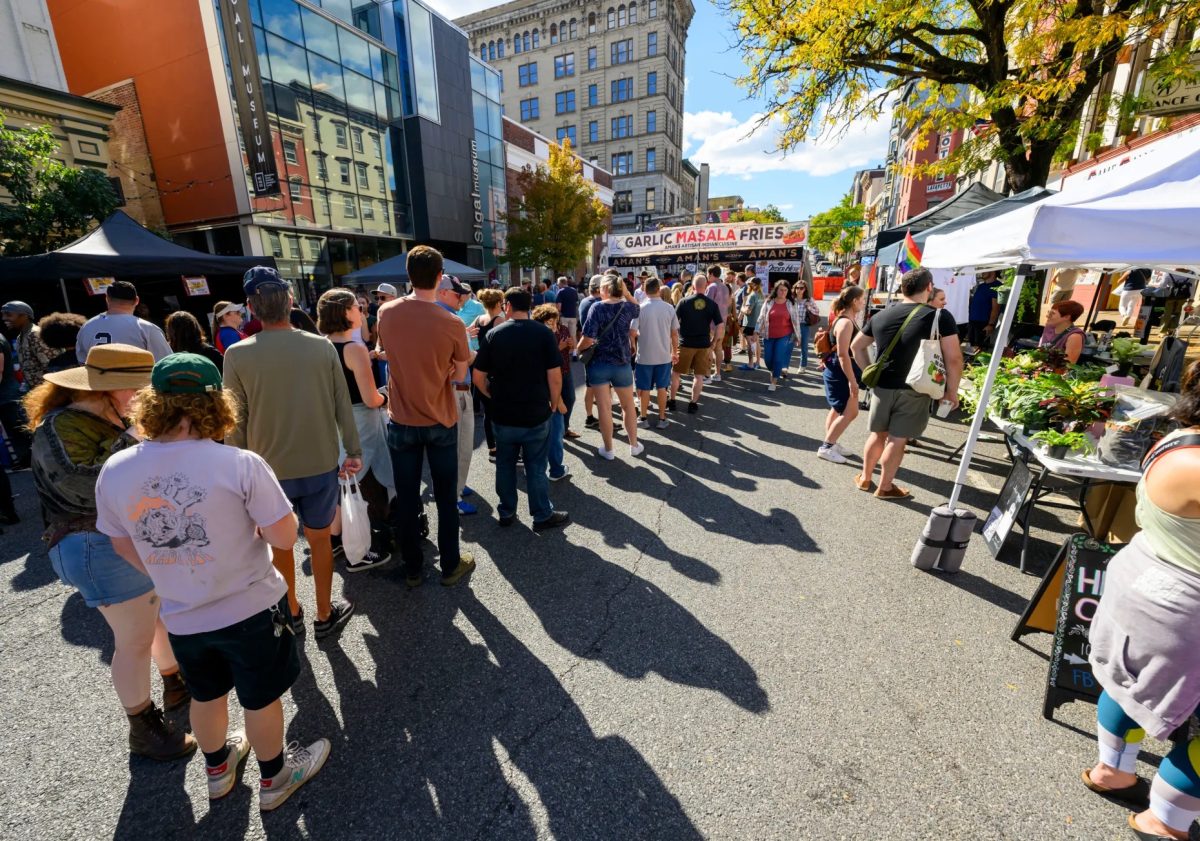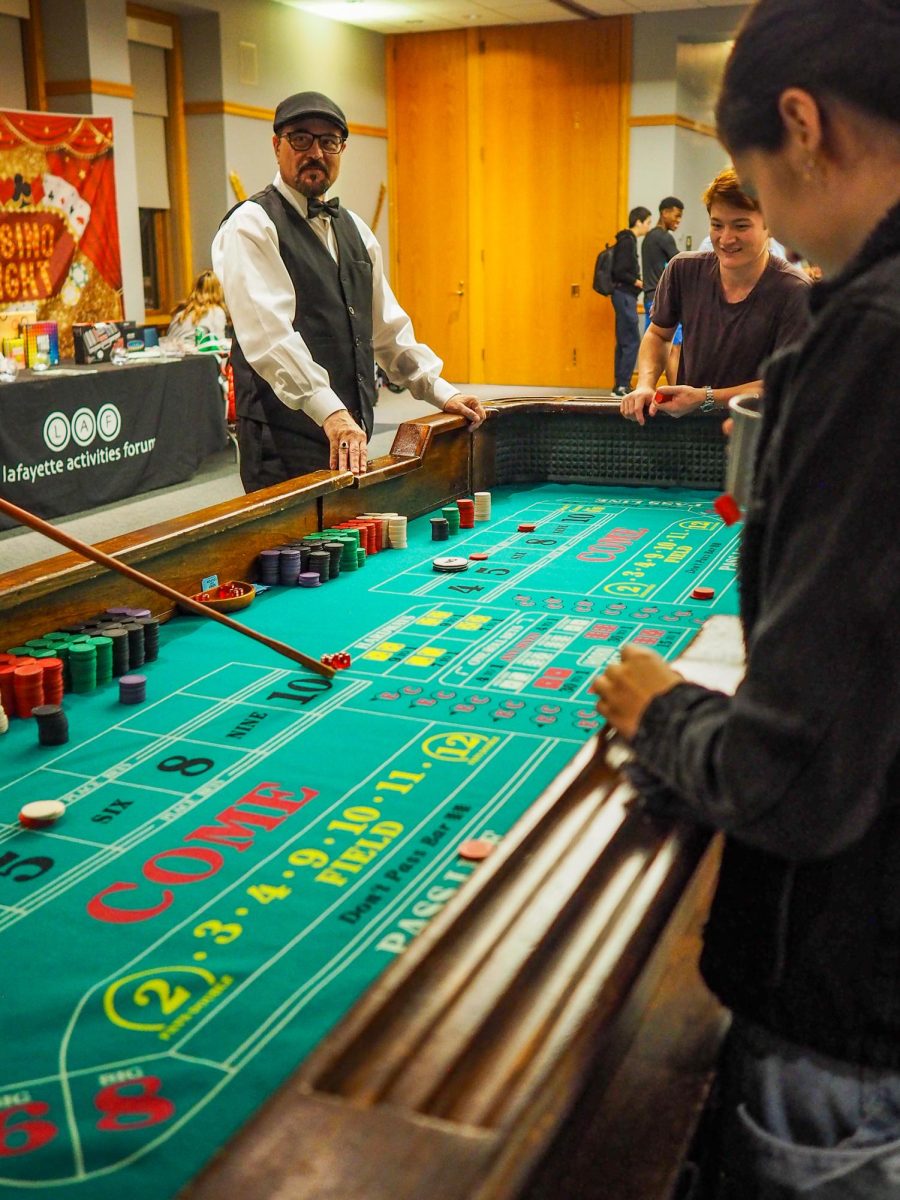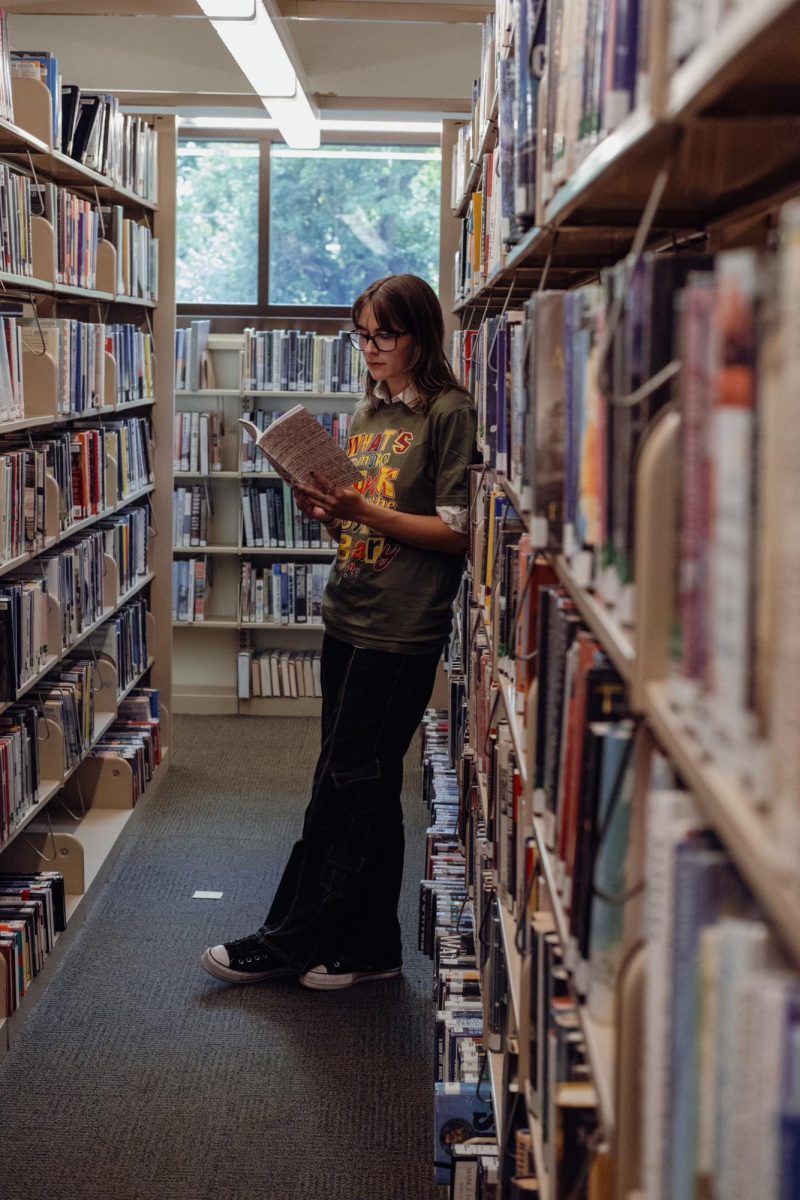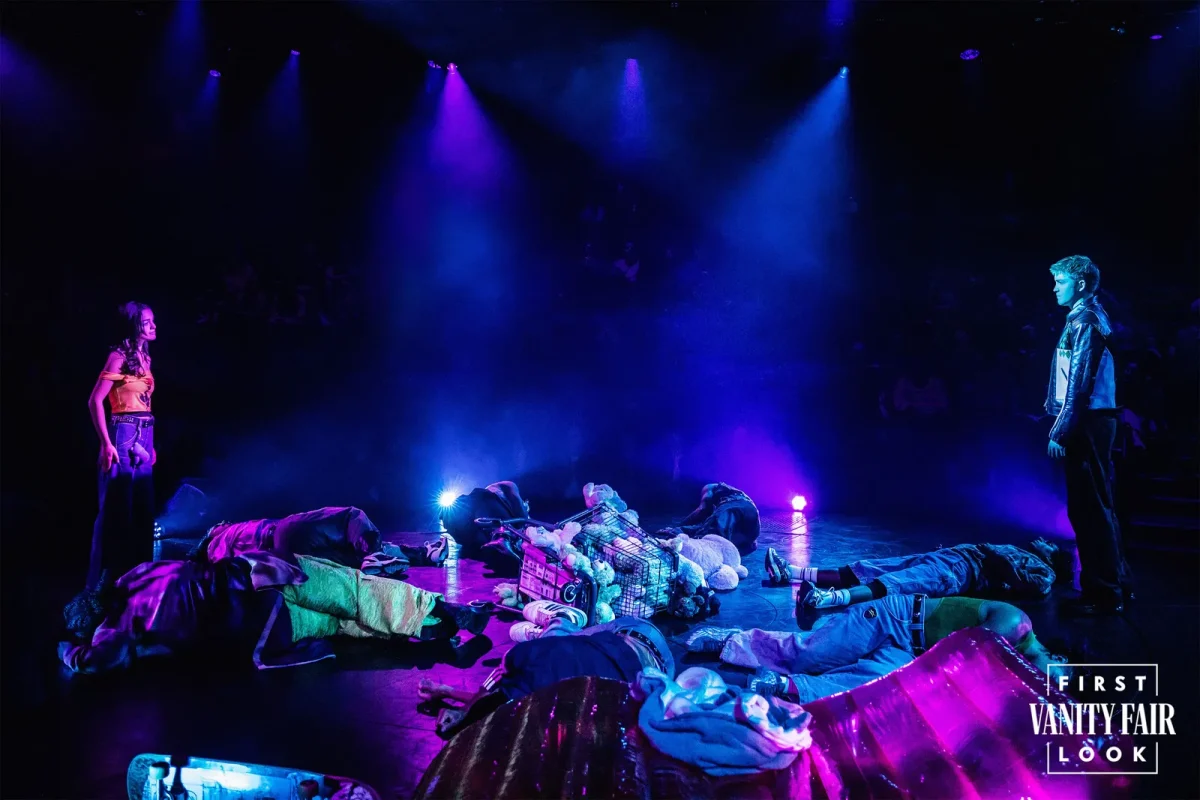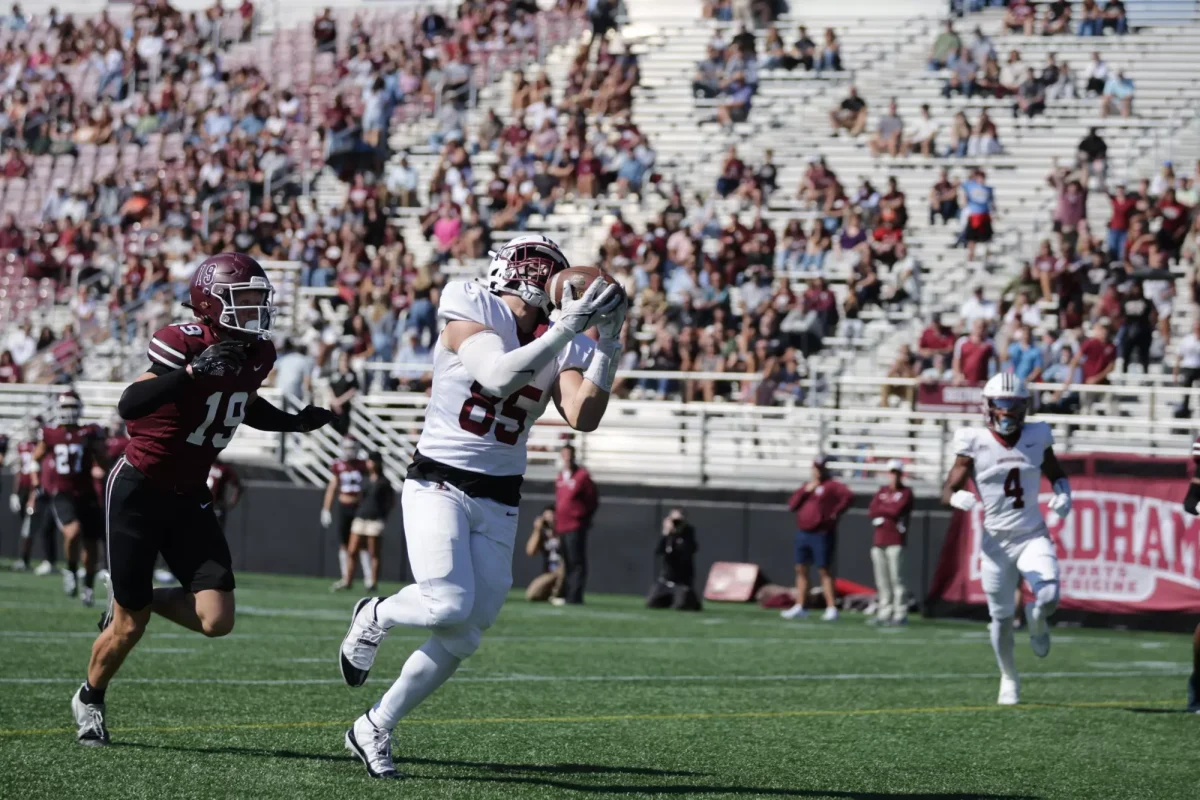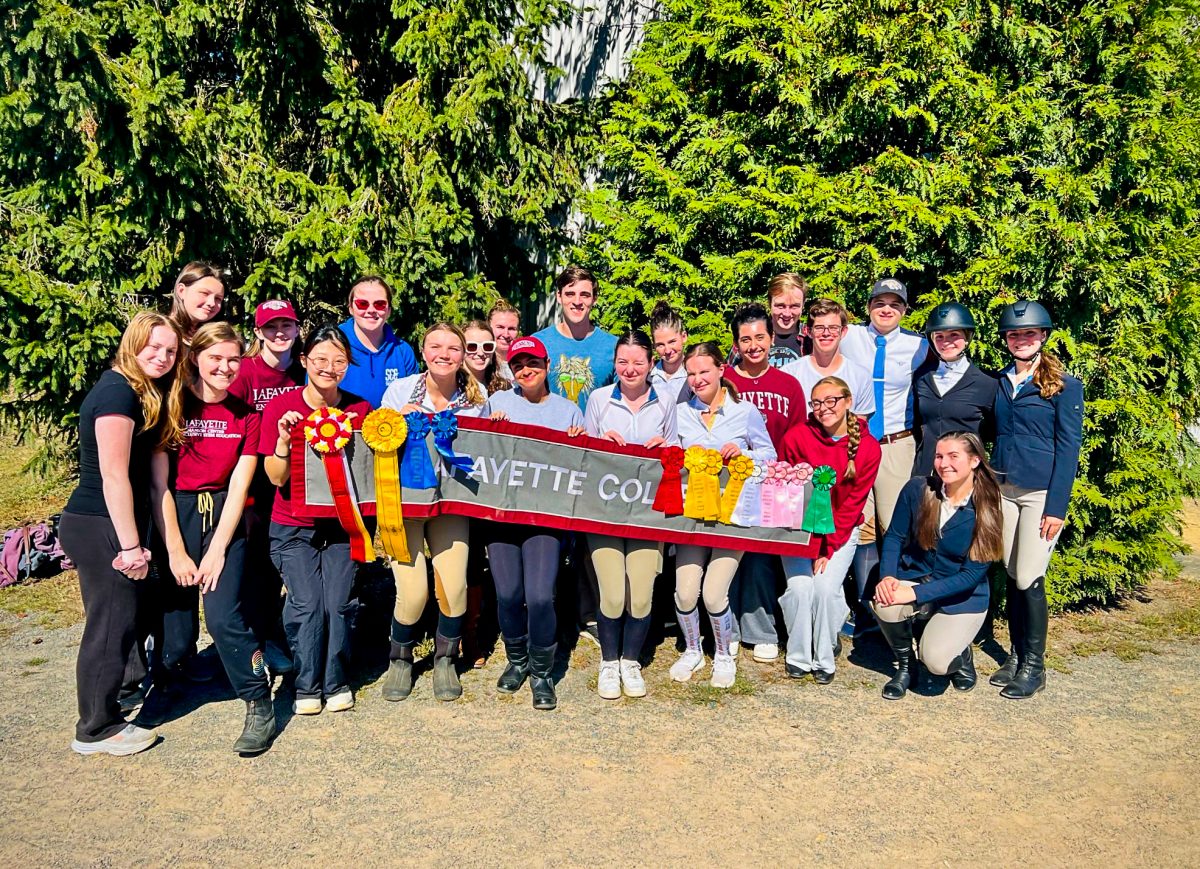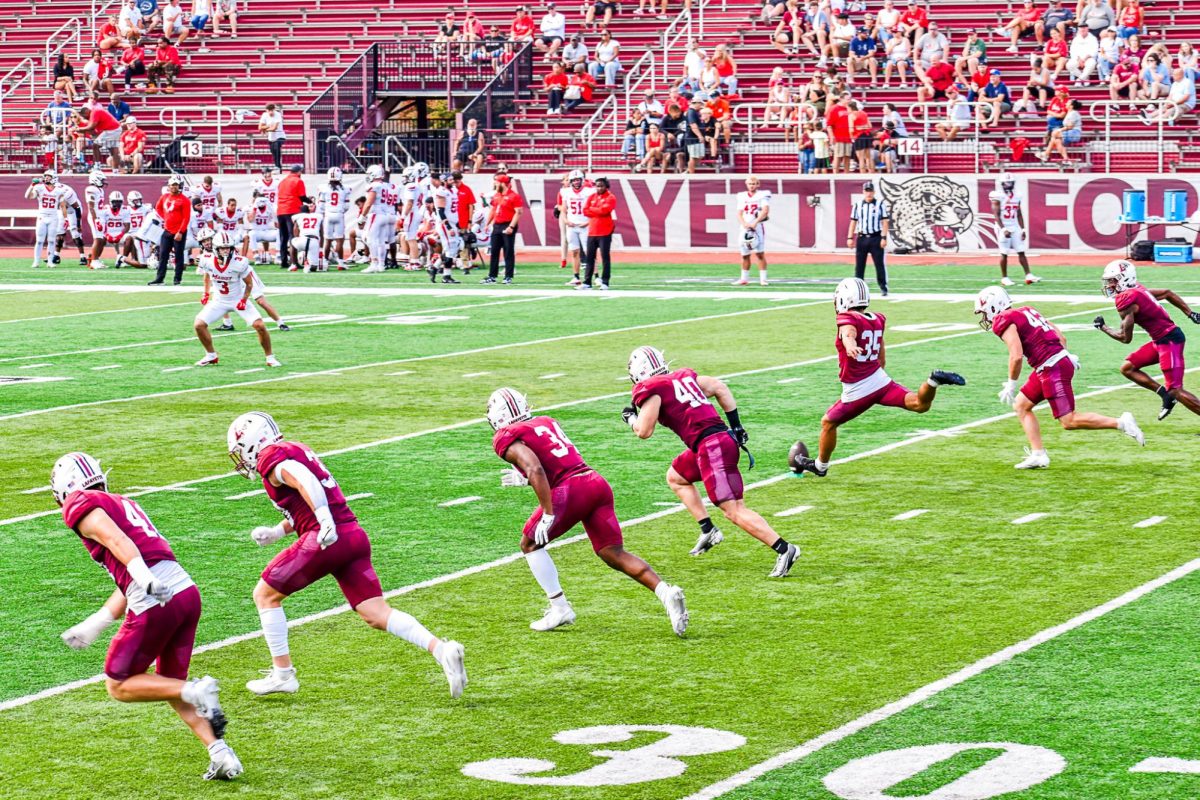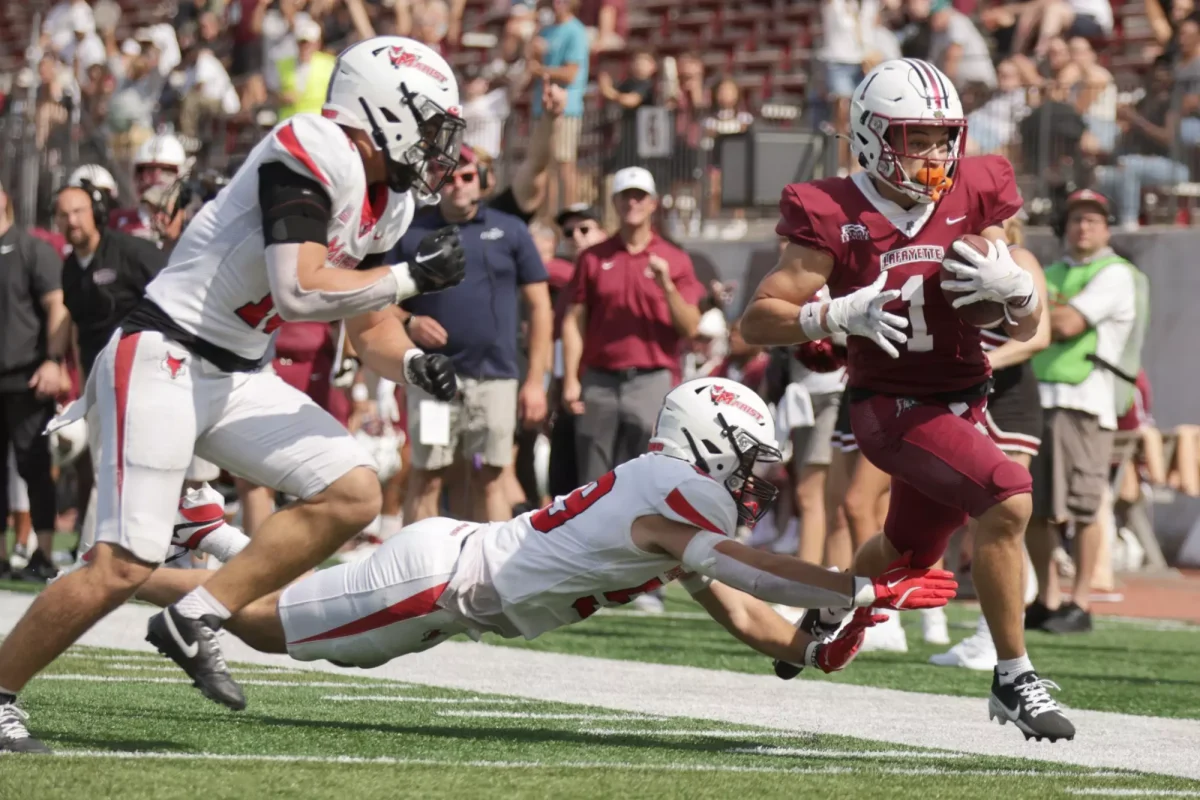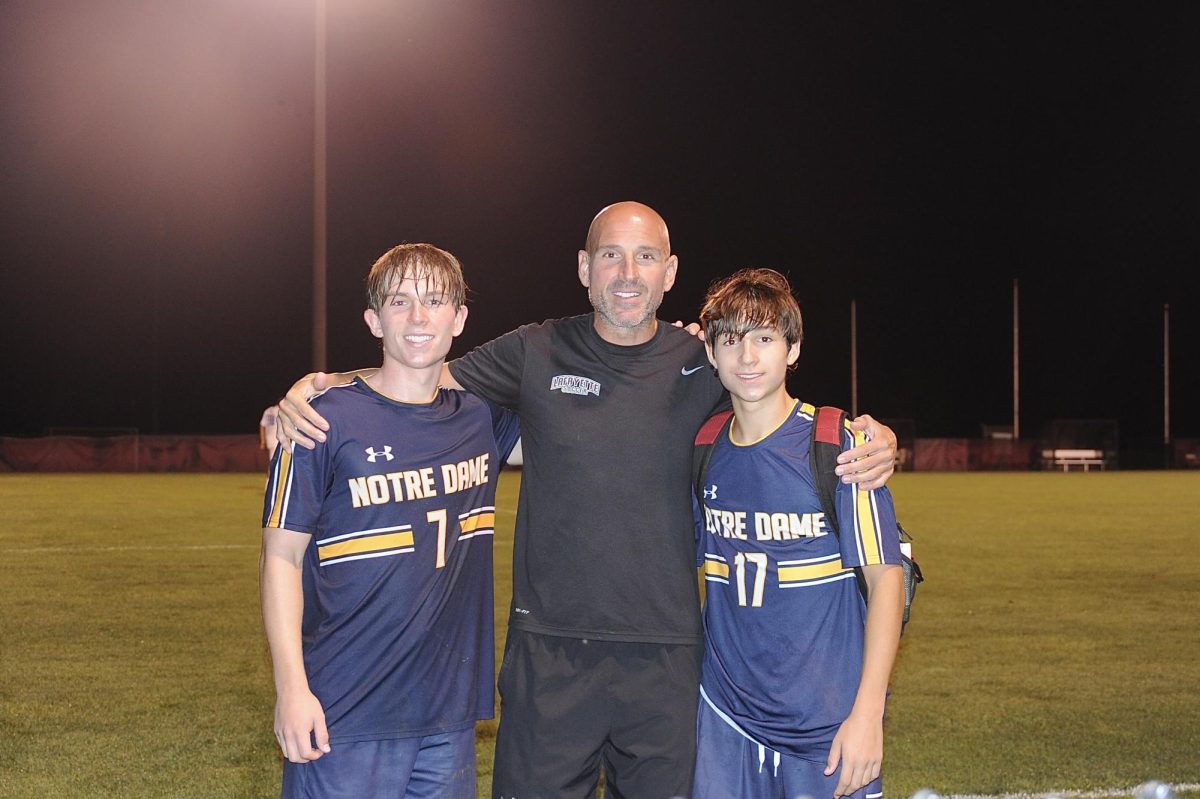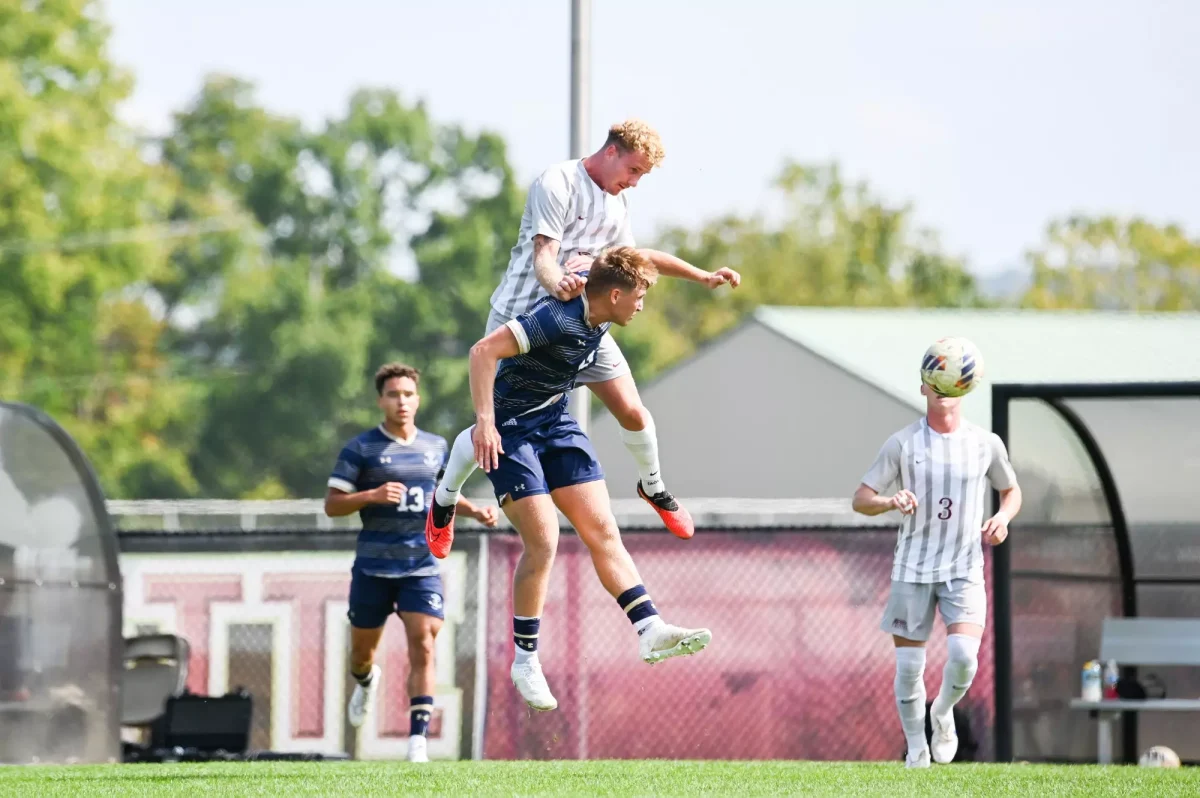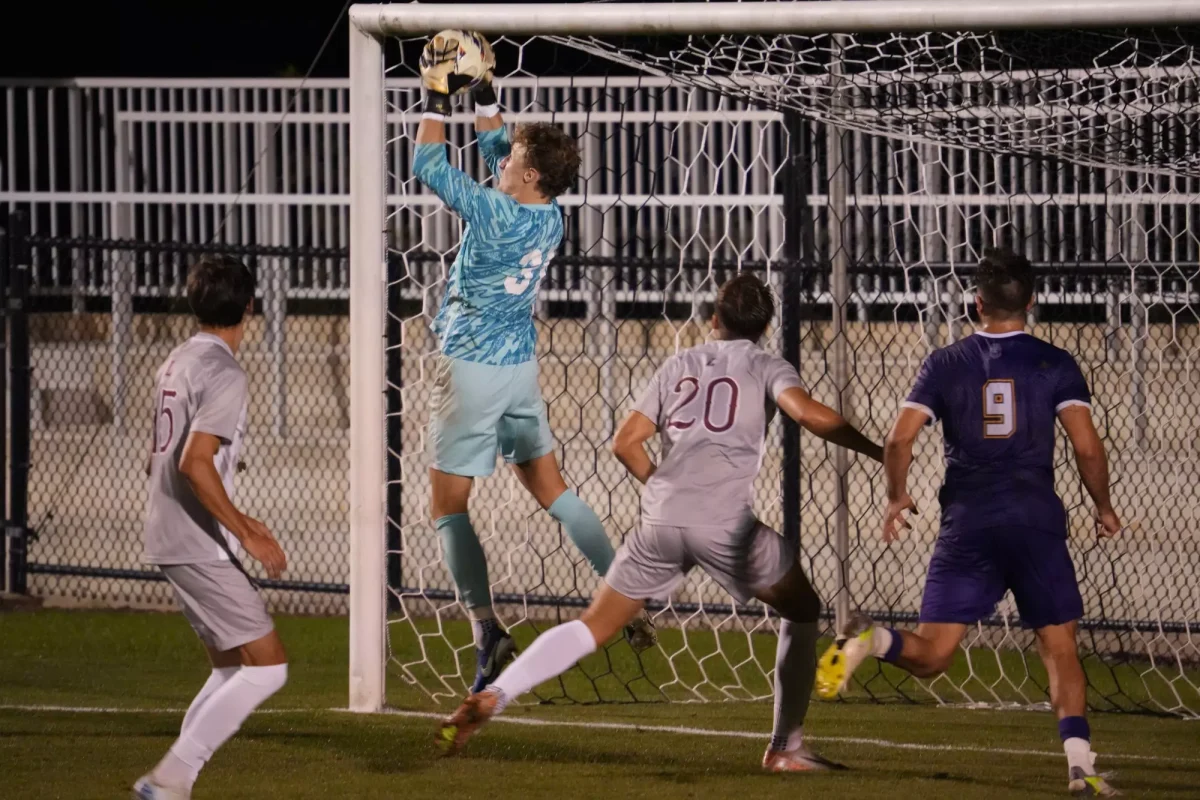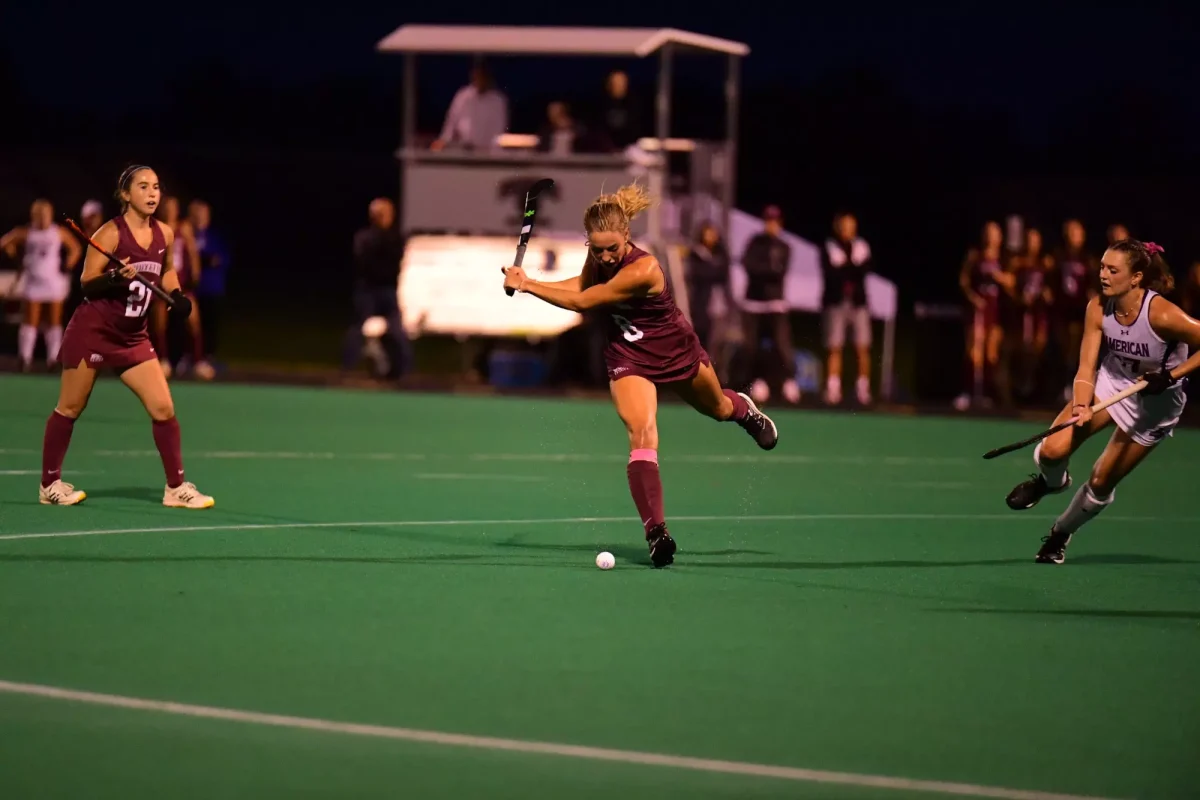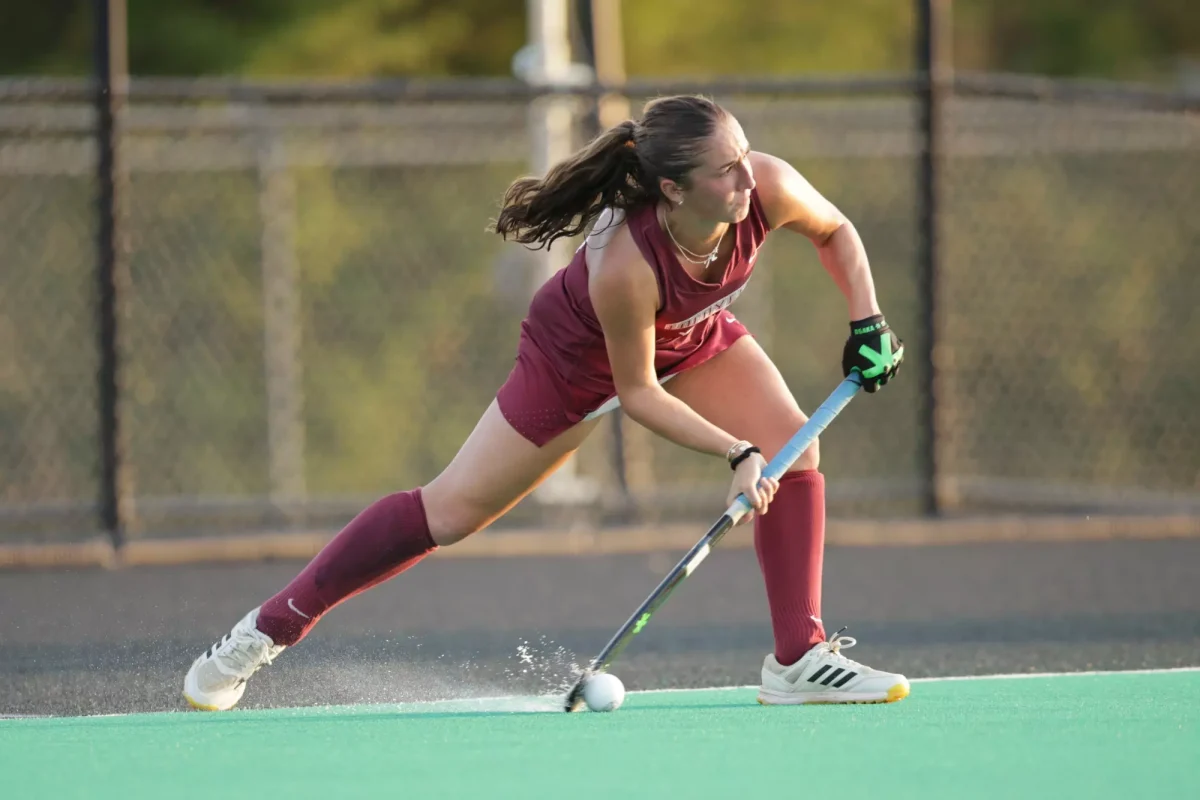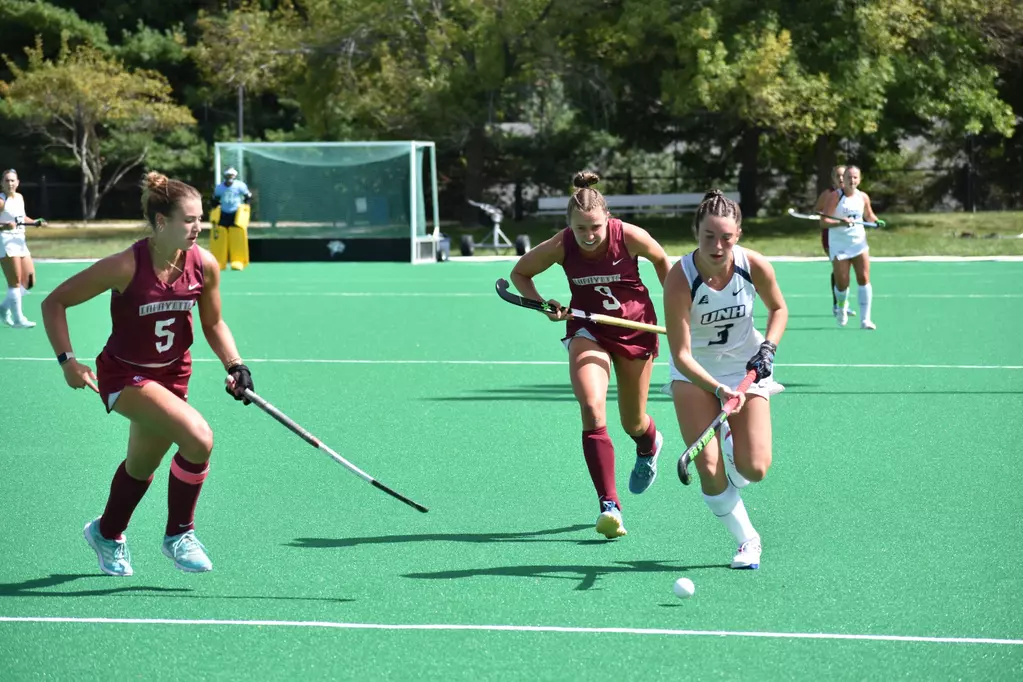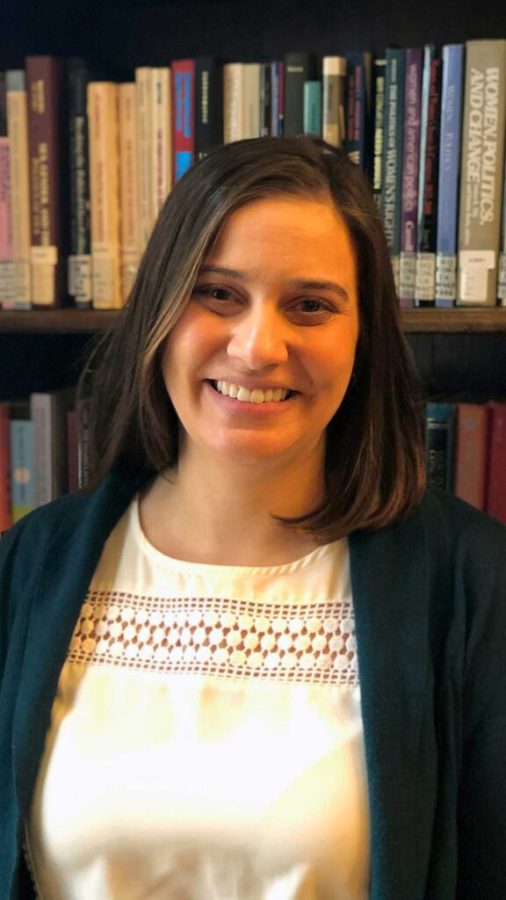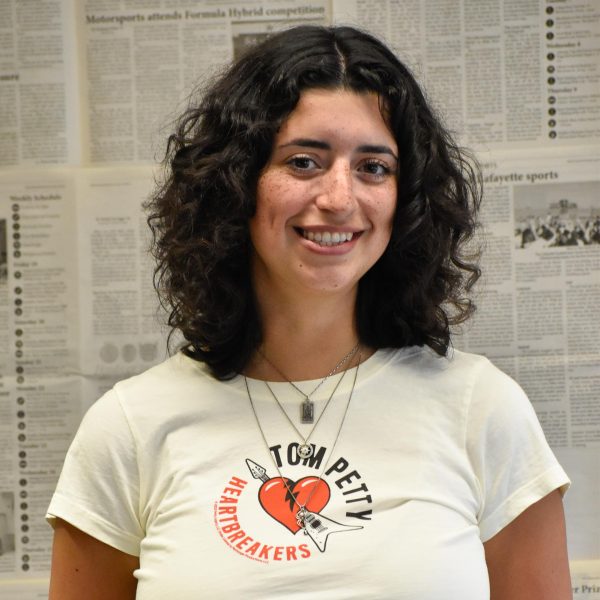Associate chemistry professor Melissa Galloway is making the invisible world around us visible with her study of atmospheric particles, which earned her a National Science Foundation (NSF) grant of $327,000.
This past summer, NSF awarded Galloway a three-year grant for her collaborative research with undergraduate students in the study of atmospheric particles and their environmental impact.
Galloway, who has been a professor at Lafayette for nine years, teaches a variety of different subjects within chemistry. However, she has been conducting research in atmospheric chemistry since she attended graduate school at the University of Wisconsin-Madison, where she knew she wanted to do something involving the environment that would have a big-picture impact on her field.
In the awarded project, “Chemical phenomena of complex carbonyl-ammonium aqueous aerosol mimics,” Galloway and her research students Stephanie Ingwer ‘24, Hope Tracey ‘24 and Paige Murphy ‘24 look at incredibly small organic compounds in the atmosphere and the reactions that occur between them.
“It’s a lot of compound identification,” Galloway said. “[My students] mix things together and then ask themselves what was formed.”
Galloway’s students take hundreds of these different compounds and solutions and, with their own knowledge and instruments they have received from other grants, determine the atmospheric particles in their samples.
The research on these particles will contribute to a better understanding of the atmosphere’s chemistry and its effects on climate change and human health.
“Dr. Galloway’s research is so cool because it has a really strong ‘why’ component. It’s very easy to remember why you’re doing that research,” Camille Carthy ‘23 said.
Carthy works with Galloway on a similar project outside of the grant. She has been working with Galloway since her sophomore year.
Galloway applied for the NSF grant earlier this year and received notice of her award over the summer.
“It was a complete shock, but also really cool to know that the work we’re doing is important enough that somewhere like the [NSF] is willing to give us a lot of money,” Galloway said.
The funding from the grant will allow Galloway to involve more students in her work, fund conference visits, purchase equipment and have an extra semester of sabbatical for research. Under normal circumstances, professors receive one semester of sabbatical for research every seven years. However, with the funding from the grant, Galloway said she can have a full year of sabbatical to focus on her project.
“There’s a lot of different pieces of the grant that will allow us to just do more than we’ve been able to do,” Galloway said. “It’s going to let us be even more complex [and] get a better idea of what’s going on in the atmosphere.”
Galloway’s students look forward to the ways the grant will allow them to dig deeper into their research.
“[We can figure] out where we want to go, from what we already know to designing what we want to do with it,” Ingwer said of the possibilities that the grant opens up for the project.
Galloway said that she has an appreciation for her students’ contributions to the project and their reception of the grant.
“I wrote this grant, I got this grant, but the students are the driving force in a lot of this. They’re the ones that work in the lab. They’re the scientists here,” Galloway said.
Galloway’s students expressed gratitude for the experiences they’ve had conducting research with her.
“Working with Dr. Galloway in the lab and on this project has been such a central part of my time at Lafayette. It’s helped me so much with being an independent thinker,” Carthy said.
“She really wants us to get experience doing the research and trying to come up with ways to maybe do things better or differently,” Tracey said. “It’s exciting. We’re ready to start something new.”

